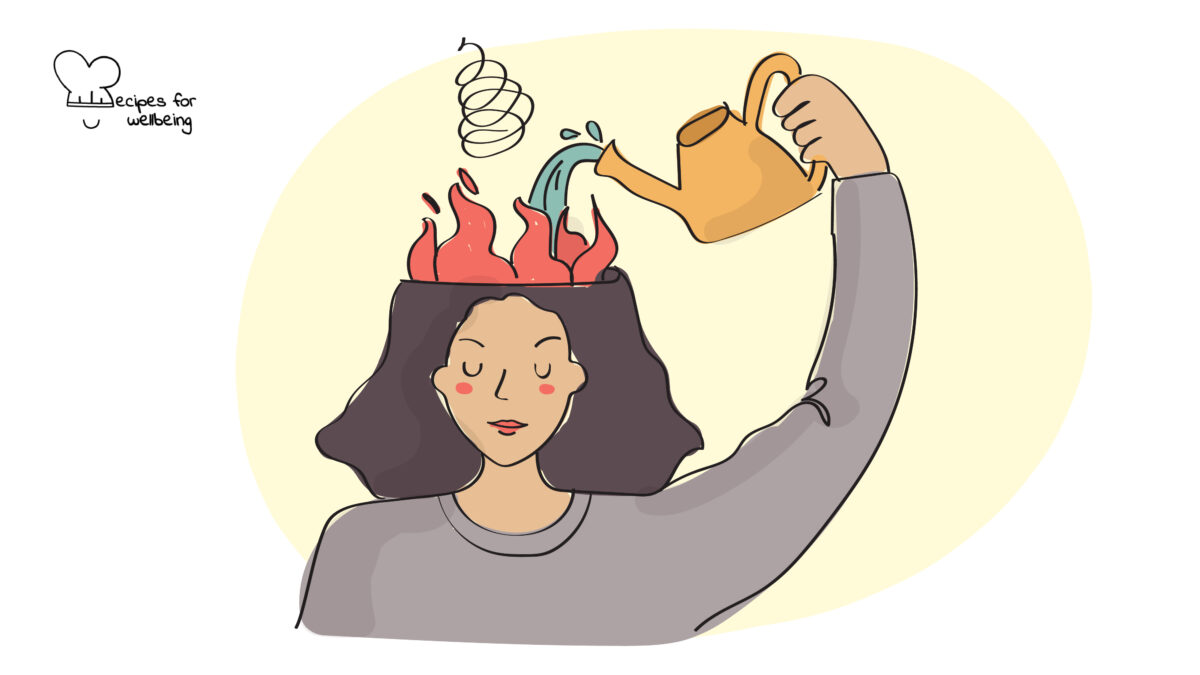
Befriending stress
Stress happens when something you care about is at stake. It’s not a sign to run away – it’s a sign to step forward. ―Kelly McGonigal
👥 Serves: 1 person
🎚 Difficulty: Medium
⏳ Total time: 11-30 minutes
🥣 Ingredients: Pen and paper
🤓 Wholebeing Domains: Awareness, Discomfortability, Positive Emotion
💪 Wholebeing Skills: Agency, Optimism, Perspective, Reframing, Resilience, Stress management

Befriending stress
📝 Description
Change your perspective towards stress to turn it in your favour.
Usually, stress gets a bad rap. Plenty of research and studies focus on the negative effects of stress on people’s health and lives. Stress is toxic. Stress kills you. However, what if it is not “stress” per se that kills you, but the combination of stress and the conviction that it is bad for you?
What if there is a positive side to stress? In the book The upside of stress, Kelly McGonigal turns to the “new science of stress” which claims that by embracing stress you can feel more competent in the face of challenges. It may also allow you to be more effective in how you use your energy, without depleting yourself. Moreover, it can help you transform stress situations into opportunities that foster social connection instead of social isolation. Finally, it can help you gain new insights into the meaning of your pain and suffering.
The new science of stress focuses heavily on the so-called “mindset science”, showing how even short interventions, aimed at changing your ways of thinking about something, can boost your health, happiness, and success, even years into the future. The most effective interventions on mindsets consists of three phases:
- Gain a new perspective or point of view;
- Do an exercise that encourages you to adopt and apply the new mindset; and
- Share the idea with others.
The following recipe has been adapted from Kelly McGonigal’s reflection exercises in the book The upside of stress.
👣 Steps
Step 1 – Self-reflection (5’)
Take a moment to reflect on your view of stress. Psychologist Alia Crum and colleagues have developed the Stress Mindset Measure, a tool to evaluate your opinion around stress. Which approach towards stress most resonates with you?
Stress is harmful.
- Experiencing stress depletes my health and vitality.
- Experiencing stress inhibits my learning and growth.
- Experiencing stress debilitates my performance and productivity.
- The effects of stress are negative and should be avoided.
Stress is healthy.
- Experiencing stress improves my health and vitality.
- Experiencing stress facilitates my learning and growth.
- Experiencing stress enhances my performances and productivity.
- The effects of stress are positive and should be utilised.
Step 2 – Findings (5’)
Alia Crum has found that people with a “stress-is-healthy” mindset have more probabilities to be optimistic, mindful, and okay with uncertainty.
People with a “stress-is-harmful” mindset are more likely to:
- Try to avoid the cause of stress, instead of facing it;
- Focus on eliminating their perceptions of stress, instead of taking measures to address the problem at the source;
- Use alcohol or other substances, or manifest addictive behaviours to escape stress; and
- Remove energy and attention from any relationship, roles, or objectives that might be causing the stress.
People with a “stress-is-healthy” mindset are more likely to:
- Accept that the stressful event has happened and is real;
- Plan a strategy to deal with the source of stress;
- Ask for information, help or advice;
- Act to overcome, remove, or change the cause of stress; and
- Try to get the best out of the situation, observing it in a more positive manner and using it as an opportunity to grow.
Step 3 – Chang your mindset (10’)
Now, the final step is to change your mindset towards stress. Observe how it manifests in your everyday life. Consider:
- How do you think about stress and talk about it?
- When others complain about stress, do you feel anxious?
- Do you try to avoid people when they’re stressed?
- How does stress influence your wellbeing and your relationships?

